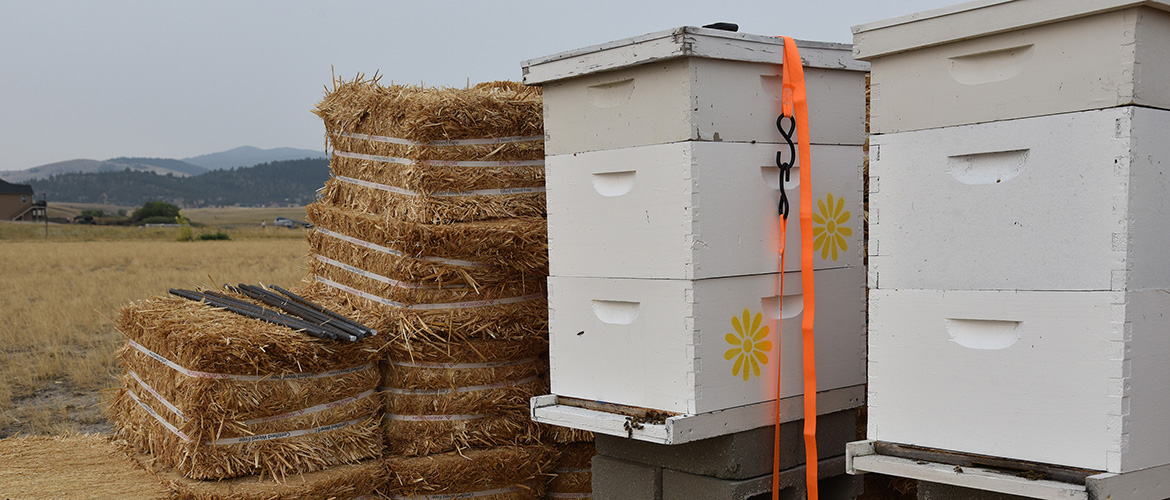There’s a buzz in the air at Blue Cross and Blue Shield of Montana’s (BCBSMT) headquarters. It’s the hum of tens of thousands of new honeybees.
BCBSMT’s Helena office recently installed two hives on the south side of the building as part of its sustainability push. The hives house nearly 70,000 docile honeybees and sit within view of the Boulder and Elkhorn Mountain ranges.
A beekeeper from Alveole, a company that helps businesses, schools and other organizations bring bees to their buildings, will maintain the hives. They will be Alveole’s first in Montana.
“I’m looking forward to having conversations with people who will learn something new,” says Cam Lay, an Alveole beekeeper caring for the BCBSMT hives. “One of the nicest things to hear from anybody is ‘oh, cool, I didn’t know that.’”
Everyone is interested in bees, he says. But many don’t realize their outsized influence on the ecosystem. They spend their lives flying miles from home looking for food sources and, moving from flower to flower, they collect pollen on their legs and underbellies and spread it around the environment during their hunt for pollen and nectar.
That nectar is needed to produce everyone’s favorite bee product: honey. Each fall, beekeepers will harvest about 200 jars from the BCBSMT hives. The harvest will fluctuate depending on the health of the bees and local rainfall. The honey will be given to BCBSMT.
But Lay, who has been working with bees for decades, hopes the project can help people see the need to save the wider bee population.
“A lot of the benefit of this project is symbolic,” Lay says. “Bees are cool, people like bees. That easily translates to an appreciation for all the wild solitary bees out there doing very similar things but without human support.
“Almost everything that benefits honeybees also benefits the native bees and native pollinator community that is in fact in trouble,” Lay says.
As pollinators, bees help grow many of the crops we eat, including chocolate, coffee and many healthy foods. Bees also produce resources with medicinal properties.
But pesticides and climate change are killing wild bee communities. So BCBSMT’s two hives represent a small act of conservation and an educational opportunity.
“It’s a great way to encourage people to think about the different ways they can help the environment while seeing the impact of how bees can create a more pleasing surrounding,” says Alex Ramirez, the BCBSMT facilities representative overseeing the hives. “It’s something small that makes a big impact.”
Helena’s climate, long winters with dry and windy conditions poses unique challenges to beekeeping. But beekeepers will insulate the hives to make it easier for the bees to regulate the hive’s temperature, setting them up for long-term success.
“The bees will get through winter, and we’ll open the hives up again next spring and start feeding and building them up,” Lay says. “They’ll do just fine.”

